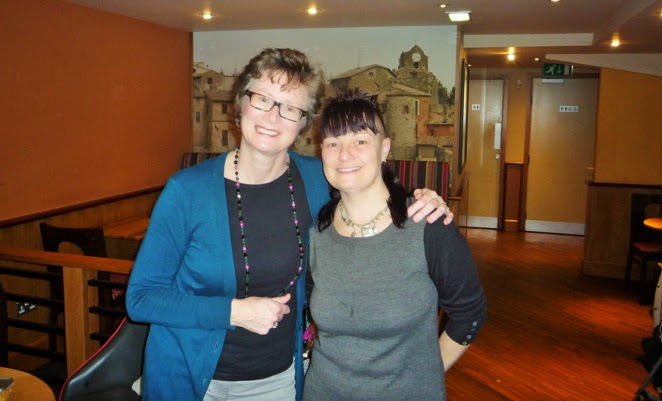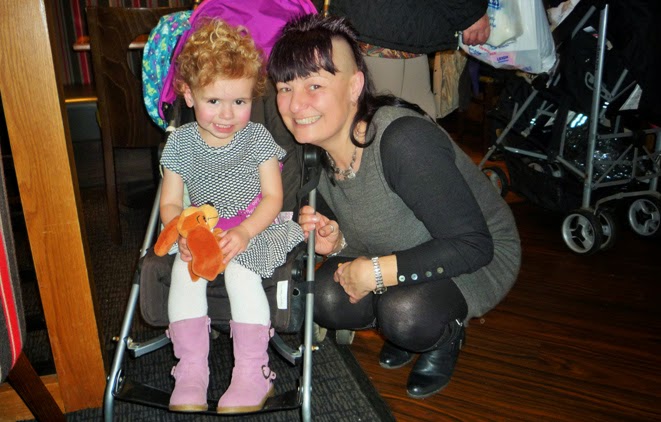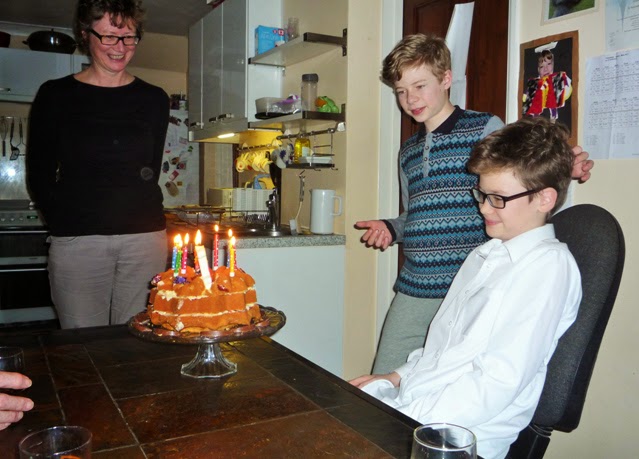A few of weeks ago, our ‘miracle’ baby Luke turned 12, and this reminded me that it was nearly 13 years ago that I was diagnosed with breast cancer. As I write this blog and talk to others about my experience, the emotions come flooding back, making it feel like yesterday.
Watch Fighting for two: cancer and pregnancy to find out more about Caroline’s story
Alone in the dark
I discovered that I was pregnant just before my pre-op tests, and after my iagnosis, I merely existed and coped – emotionally, it was a very difficult period. I was faced with the very real chance of dying and was worried about the baby inside me. This hurt emotionally and was extremely scary.
What made the experience so much worse for me was that there were no other stories, nothing to gain strength and support from. At times I felt alone, despite having a very supportive husband and wonderful friends. How could anyone understand what I was going through? Considering death, yet hope of a new life inside. It’s been nearly 13 years, yet writing this now, tears still well up in my eyes.
I have no doubt that my and my family’s journey would have been so much smoother had I been able to read other women’s stories or talk to them, to help me understand my own emotions. When faced with such a challenge, it is so important to have someone else’s experience to cling to: someone who truly understands what it is like. This gives reassurance and proof – two things I didn’t have at the time.
Establishing connections
It was not until 5 years after having Luke that I plucked up the courage to see the cancer counsellor at the hospital. She introduced me to a cancer support group, which was an enormous support for me. After a year, I was invited to tell my story to a group of nurses at the hospital, to help them better understand the patient, and hence provide better care.
Having gone through all this, however, I wanted to do more. So some years later, I started taking part in medical research headed by Professor Frederic Amant and through this I met other mothers who had also been treated for cancer during pregnancy.
This experience was unbelievable. Over the course of the research, our families were invited to meet each other. The atmosphere was magical and very unusual, the air filled with anticipation and relief that, at long last, these “special cases” had got to meet each other. We shared our stories, we laughed, we cried, and we hugged each other. Our husbands chatted and our children played. It was truly amazing.

Reaching doctors and the public
We tell our stories to raise awareness, among doctors and the general public. And it works.
I was interviewed by The Guardian and, afterwards, I was contacted by Janne Rodsten. She had suffered breast cancer whilst pregnant and is now carrying out a formal study into women’s experience of pregnancy-associated breast cancer for her PhD. I think that it is a wonderful initiative that will be very beneficial, combining clinical treatment with emotional support for the family.
There are still doctors out there unnecessarily advising women to terminate pregnancies when in fact they could be treated and keep their bundle of joy. This is truly tragic and raising awareness can help reduce this risk.
If the general public knows that one can safely be treated for cancer and various other illnesses when pregnant, people may feel a little less self-conscious about taking medication when pregnant. I, for one, felt awkward having the chemo when pregnant.
Helping others helps you too
Through Professor Amant’s study and mothers telling their stories, we are trying to help other families in the same situation. Some time ago I received an email from an expectant mother who, diagnosed with cancer, had been told by her doctor that she would have to have her pregnancy terminated. ‘Please say there is hope for me’, she pleaded in an email rife with panic and distraught. I assured her that there is always hope – and in the end she was treated and kept her baby.
Another good thing about helping others is that it is a two-way street. Not only does telling your story help others, but it helps you gain understanding of your own situation too. On Luke’s birthday, for example, I met Lucy, a wonderful woman with a two-year-old daughter living in a local town. Lucy had been diagnosed with cancer when she was seven weeks pregnant. 14 weeks in, she had started chemotherapy, and on her due date, she gave birth to a perfectly healthy daughter.

It was a story remarkably similar to mine, and through talking to her, another thing slotted into place for me. In my first five years after Luke’s birth, I sometimes felt an overwhelming anger, which I put down to my fear of dying. Lucy had felt the same, but had actually discovered that it was the Tamoxifen she had been taking that had been playing with her hormones. She is now taking something that helps with that aspect. I had also been taking Tamoxifen but never made the connection – it was only through talking to her that I realized that this was a contributing factor.
Hearing other women’s stories even helps if you had the treatment years ago. It can take a long time to fully process the experience, and hearing others’ stories really helps. I have found that as time went on, the fear of losing my life has practically gone. We feel so fortunate to have our healthy family, our wonderful friends, and we truly enjoy life.
Thank you for reading my blog and I do hope that if you have a story to tell, you will do so. It still helps me to this day and it will help others in more ways than you can imagine.

